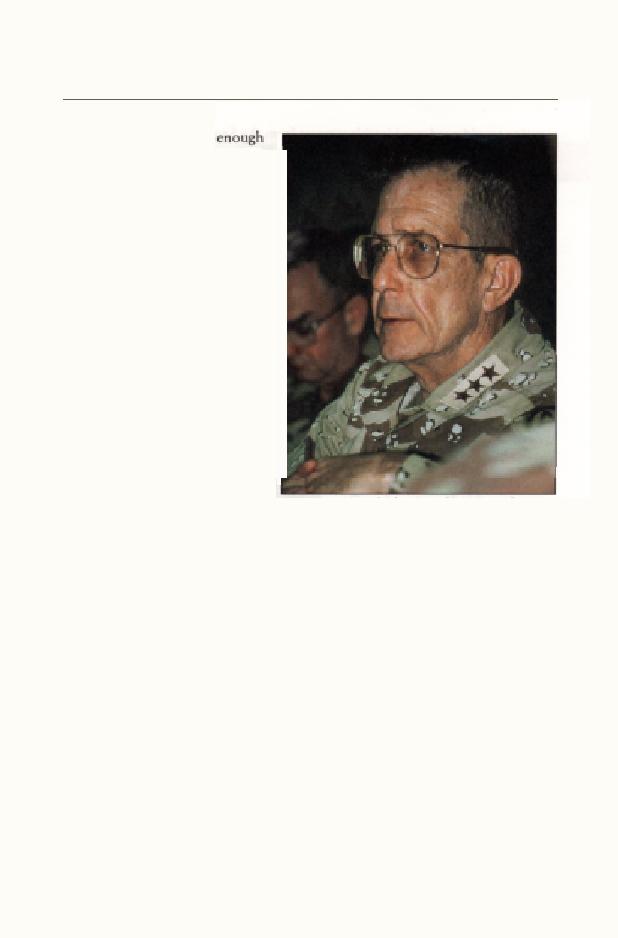
U.S. Army Engineers in the Gulf War
6
States would deploy
troops to deter further Iraqi
a t t a c k . Meanwhile, General
Schwarzkopf directed Lieu-
tenant General John Yeosock,
commander of Third U.S. Army,
at Fort McPherson, Georgia, to
come
immediately
to
C E N T C O M headquarters in
Florida. Before he left, Yeosock
told Major General William
"Gus" Pagonis [Pagonis was
promoted to Lieutenant General
on 12 February 1991], deputy
chief of staff for logistics at U.S.
A r m y Forces Command, to
prepare a logistics plan that he
could present to Saudi Arabia's
King Fahd Bin Abdul Aziz.3
On 5 August Cheney,
Schwarzkopf, Yeosock, Deputy
National
Security
Advisor Lieutenant General John Yeosock, Commander, Army
Robert M. Gates, and other top Central Command.
(U.S. Army photo by SGT Ybanez)
administration officials flew to
Saudi Arabia, at the direction of President Bush, to confer with King Fahd and
to negotiate the deployment of U.S. troops. By that time, 11 Iraqi divisions were
either in or on their way to Kuwait. At the 6 August meeting, Cheney made
King Fahd three promises: the United States would deploy a force large enough
to get the job done, stay as long as necessary, and leave when requested to do
so. At the end of the meeting, the king formally invited the United States to
send troops to reinforce his defenses.
When he returned to Washington the next day, Secretary Cheney informed
the President that King Fahd had agreed to let the United States send forces to
defend Saudi Arabia. In a nationally televised address on 8 August, President
Bush condemned Iraqi aggression and announced the deployment of U.S.
troops to Saudi Arabia in what was designated Operation DESERT SHIELD. The
United States, he explained, demanded Iraq's "immediate and unconditional"
withdrawal from Kuwait, the restoration of Kuwait's legitimate government,
release of all hostages and free functioning of all embassies, and "the stability
and security" of the Persian Gulf.4
CENTCOM's missions were clear: deter further Iraqi aggression, defend
Saudi Arabia, enforce United Nations' sanctions, and develop an offensive
capability to liberate Kuwait. The plan for the defense of the Arabian peninsula



 Previous Page
Previous Page
